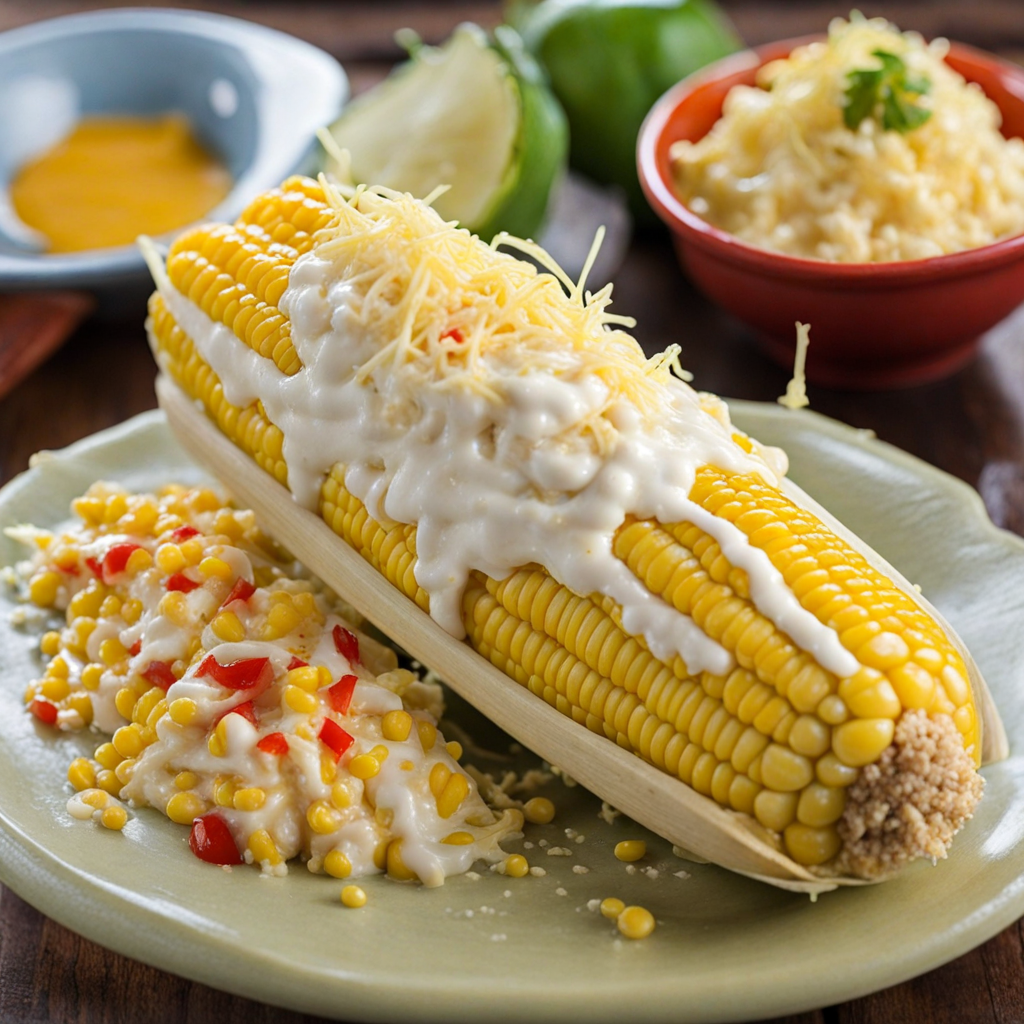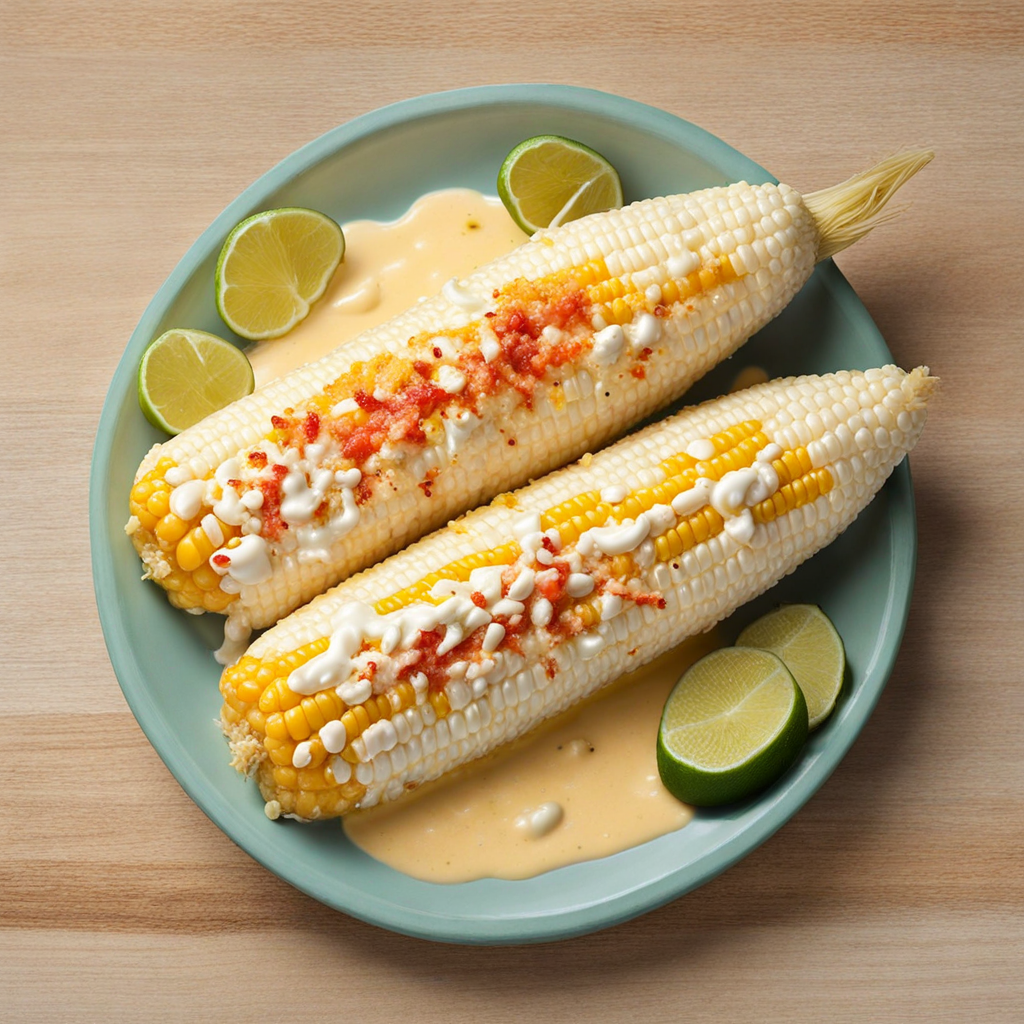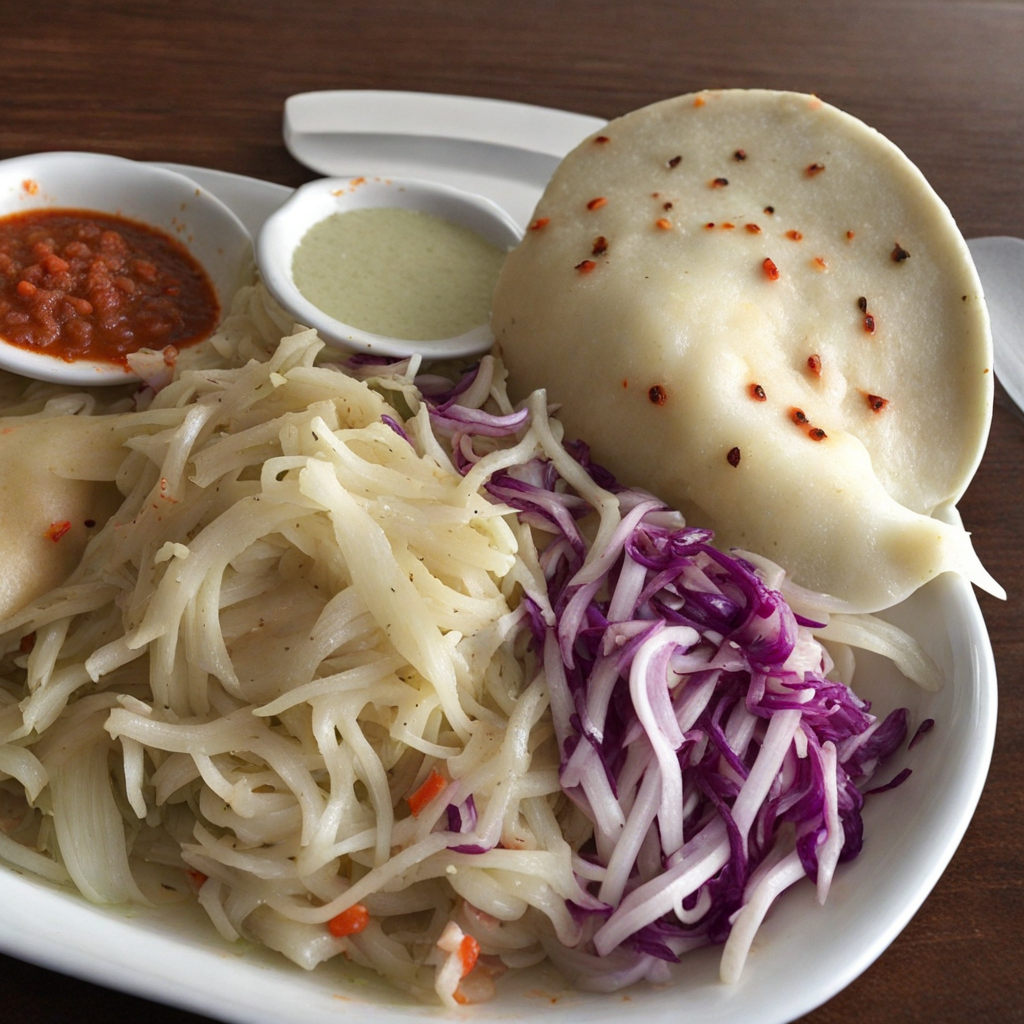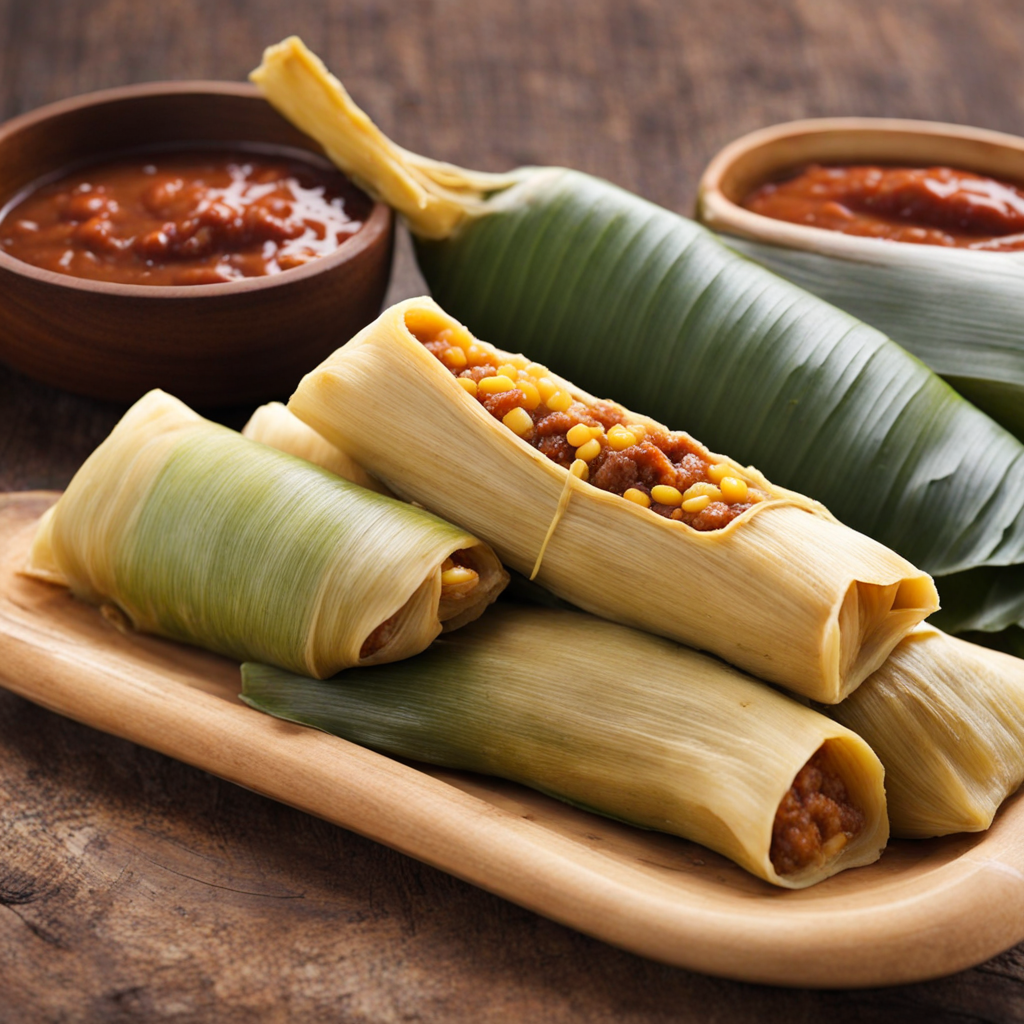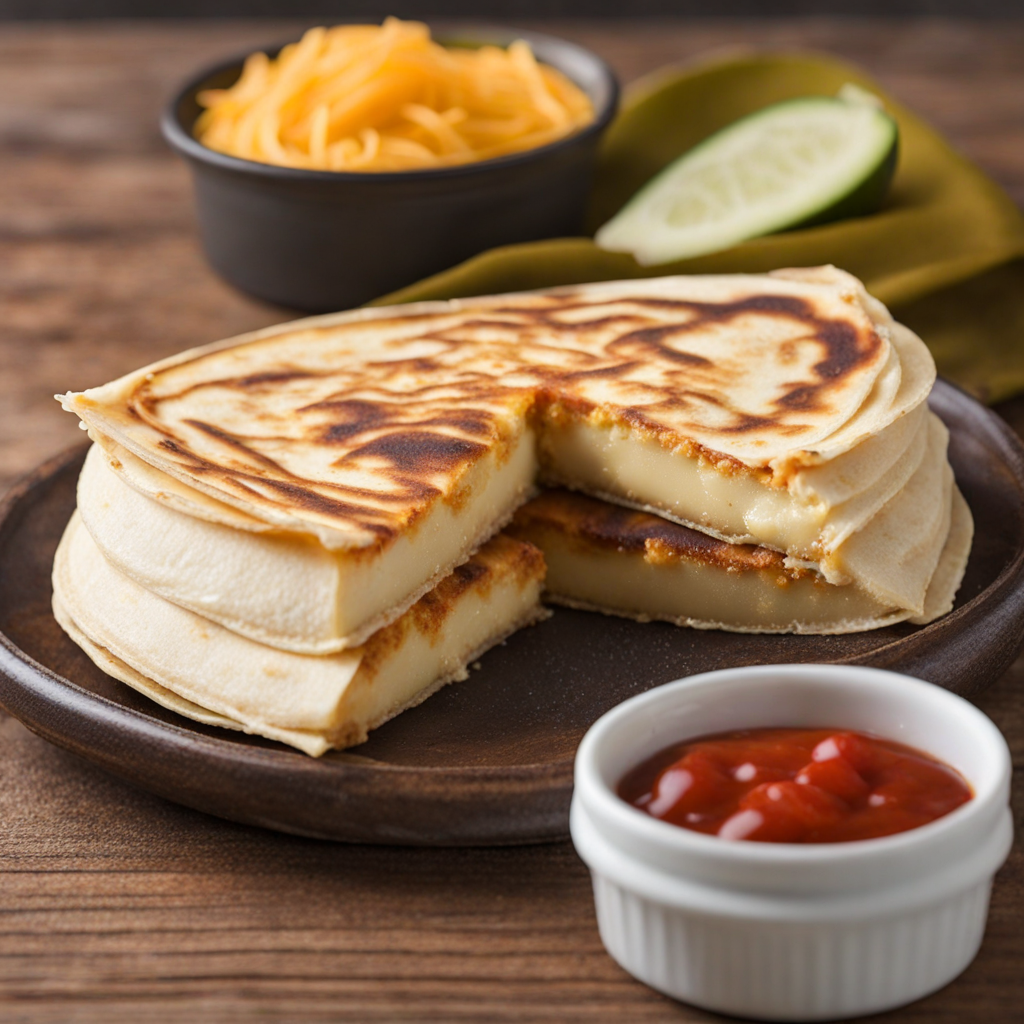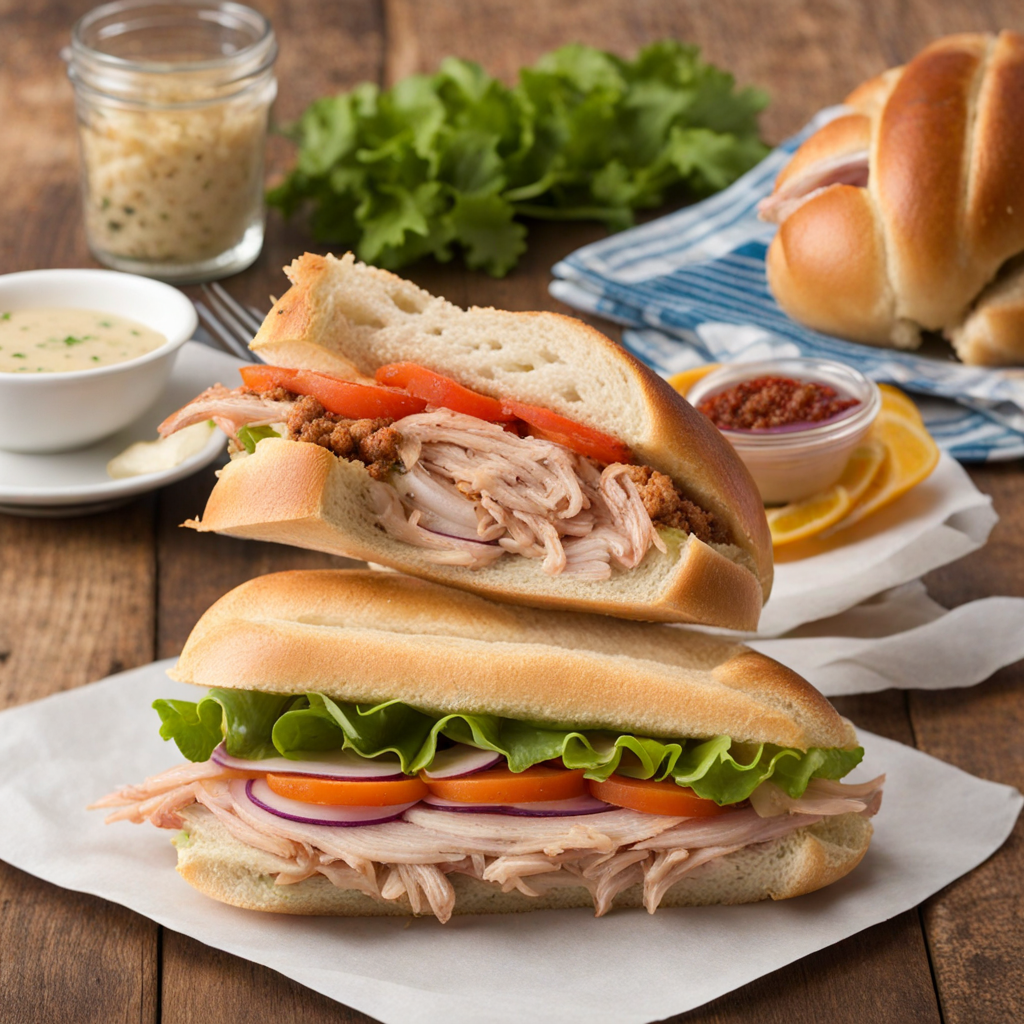Elote Loco
Elote Loco is a vibrant and flavorful street food that captures the essence of El Salvador's culinary culture. At its core, it features grilled corn on the cob, which is typically charred to perfection, creating a smoky flavor that pairs beautifully with its toppings. The corn is often served on a stick for easy handling, making it a popular choice among street vendors and food stalls. The combination of textures and flavors starts with the tender, juicy kernels of the corn, which provide a satisfying crunch with each bite. What sets Elote Loco apart is its generous layering of toppings that create a delightful explosion of taste. A typical serving includes a slather of creamy mayonnaise, a sprinkle of crumbled cheese, and a drizzle of zesty lime juice, which together create a creamy, tangy contrast to the sweet corn. Additionally, it is often topped with a dusting of chili powder or hot sauce, adding a spicy kick that elevates the dish to new heights. Each ingredient complements the others, making Elote Loco a harmonious blend of flavors that dance on the palate. Elote Loco is not just a snack; it's an experience that embodies the spirit of Salvadoran street food. Eating it is a communal affair, often enjoyed at bustling markets or lively gatherings. The bright colors of the toppings and the irresistible aroma of grilled corn create an inviting atmosphere that encourages sharing and savoring each bite together. This dish is a true celebration of local ingredients and culinary tradition, making it a must-try for anyone looking to explore the rich flavors of El Salvador.
How It Became This Dish
Elote Loco: A Culinary Journey Through El Salvador Elote Loco, a beloved street food from El Salvador, is a celebration of flavor, culture, and community. This tasty corn dish, which translates to "Crazy Corn," highlights the vibrant culinary traditions of the country, intricately woven into the socioeconomic fabric of Salvadoran society. Its history encapsulates the fusion of indigenous heritage, colonial influences, and modern adaptations, reflecting the evolution of Salvadoran cuisine over time. Origins The roots of Elote Loco can be traced back to the indigenous peoples of Mesoamerica, who cultivated corn (maize) as a staple food long before European contact. Corn has held a vital place in the diets and cultures of these civilizations, revered not just for its nutritional value but also for its symbolic significance. The ancient Maya and Aztec civilizations relied heavily on maize, often incorporating it into religious rituals and daily meals. When the Spanish arrived in Central America in the 16th century, they introduced new ingredients and cooking techniques, which began to blend with the indigenous traditions. This fusion laid the groundwork for many traditional Salvadoran dishes, including those featuring corn. Elote, or corn on the cob, is a prime example of this synthesis, as it combines the ancient reverence for maize with the new culinary influences brought by European settlers. Cultural Significance Elote Loco is more than just a snack; it is a representation of Salvadoran identity and a symbol of communal life. It is often sold by street vendors in bustling markets or at local fairs, making it accessible to all social classes and fostering a sense of community. Sharing food is a universal bonding experience, and Elote Loco serves as a social catalyst, bringing friends and families together. The dish is typically prepared by grilling fresh corn on the cob until it is slightly charred, enhancing its natural sweetness. The corn is then slathered with a mixture of mayonnaise, sour cream, or crema, dusted with crumbled cheese, and topped with chili powder or hot sauce, creating a delightful explosion of flavors. Each vendor often adds their unique twist, making every Elote Loco a personal creation. This variation across regions and vendors showcases the creativity and adaptability of Salvadoran cuisine. Development Over Time Over the years, Elote Loco has developed into a culinary staple that transcends its simple ingredients. Its evolution is reflective of broader trends in Salvadoran society, including urbanization and globalization. As cities in El Salvador expanded, the demand for quick, affordable, and delicious street food surged. Elote Loco thrived in this environment, becoming a sought-after snack for busy urban dwellers. The dish also gained popularity among Salvadoran immigrants in the United States, where it became a symbol of cultural pride and nostalgia. In the 1980s and 1990s, as waves of Salvadorans fled civil unrest in their homeland, they brought their culinary traditions with them. Street vendors began offering Elote Loco at fairs and festivals, introducing the dish to a broader audience. Today, it is not uncommon to find Elote Loco being served at food festivals and markets across the United States, often adapted to local tastes while maintaining its core essence. Modern Interpretations and Globalization With the rise of food culture and the popularity of food trucks, Elote Loco has experienced a renaissance, garnering attention from food enthusiasts and chefs alike. Modern interpretations of the dish have emerged, incorporating diverse ingredients and techniques. For instance, some vendors might offer variations with toppings such as garlic butter, bacon bits, or specialty cheeses, appealing to a wider range of palates. Social media has also played a significant role in popularizing Elote Loco beyond the Salvadoran community. Instagram and culinary blogs have allowed food lovers to share their experiences, showcasing the dish's vibrant colors and irresistible flavors to a global audience. This exposure has not only celebrated Salvadoran cuisine but also fostered an appreciation for the cultural heritage that food represents. The Role of Community and Tradition In many ways, Elote Loco embodies the spirit of El Salvador. It is a dish that brings people together, whether at a family gathering, a festival, or simply on the streets of San Salvador. The preparation and enjoyment of Elote Loco often involve communal gathering and sharing, reinforcing social bonds and cultural identity. Elote Loco is also a testament to the resilience of Salvadoran culture. Despite the challenges faced by the nation, including economic struggles and environmental issues, the culinary traditions of El Salvador continue to thrive. This dish serves as a reminder of the country’s rich history and the creativity of its people, who adapt and innovate while remaining connected to their roots. Conclusion Elote Loco is more than just a dish; it is a narrative of culture, history, and community. From its origins in ancient Mesoamerican civilizations to its status as a beloved street food in both El Salvador and abroad, Elote Loco encapsulates the dynamic nature of culinary traditions. As the world continues to embrace diverse food cultures, Elote Loco stands as a flavorful testament to the enduring spirit of Salvadoran identity, inviting everyone to share in the joy of this "crazy corn." In a world increasingly disconnected, the act of enjoying Elote Loco—whether at a street stall in San Salvador or a food festival in Los Angeles—reminds us of the universal connections that food fosters, bridging communities and celebrating shared heritage through the simple yet profound act of eating together.
You may like
Discover local flavors from El Salvador


